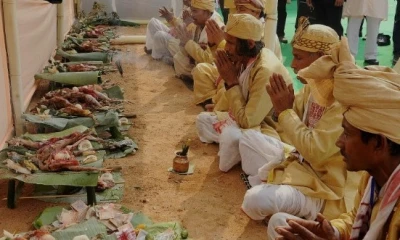The Me-Dam-Me-Phi festival, honouring departed ancestors and their contributions to society, is a significant occasion for the Ahom community, celebrated annually on January 31.
In observance of this revered festival, Assam Chief Minister Himanta Biswa Sarma conveyed his heartfelt wishes, stating, “I extend my warmest greetings to all on the auspicious occasion of Me-Dam-Me-Phi. As we commemorate the Pulin-Puthaos, let us honour our ancestors with reverence and gratitude. May this festival bring peace, joy, and prosperity to every household.”
Rooted in Tai tradition, the festival’s essence resonates with various Tai-origin communities worldwide, encompassing approximately 93 million individuals, including Dai, Thais, Isan, Tai Yai (Shan), Lao, Tai Ahom, and Northern Thai peoples.
The term “Me-Dam-Me-Phi” signifies offerings to ancestral spirits, embodying the reverence and connection with departed souls. During the festivities, homage is paid to three deities – Me Dam Me Phi, Dam Chang Phi, and Grihadam – through rituals conducted by Ahom priests, invoking blessings and guidance from the spiritual realm.
Customarily, Chaufi, representing celestial deities, receive veneration on Me-Dam-Me-Phi, while Dam Chang Phi and Grihadam, considered primordial gods, are omitted from worship on this specific day.
Central to Ahom belief is the transition of the deceased from Dam (ancestors) to Phi (deities), with souls immortalizing and bestowing blessings upon their kin. Families honour their ancestors by erecting Damkhuta pillars, offering homemade wine, rice powder mixed with eggs, and other traditional items as tributes to their memory and spiritual presence.

















